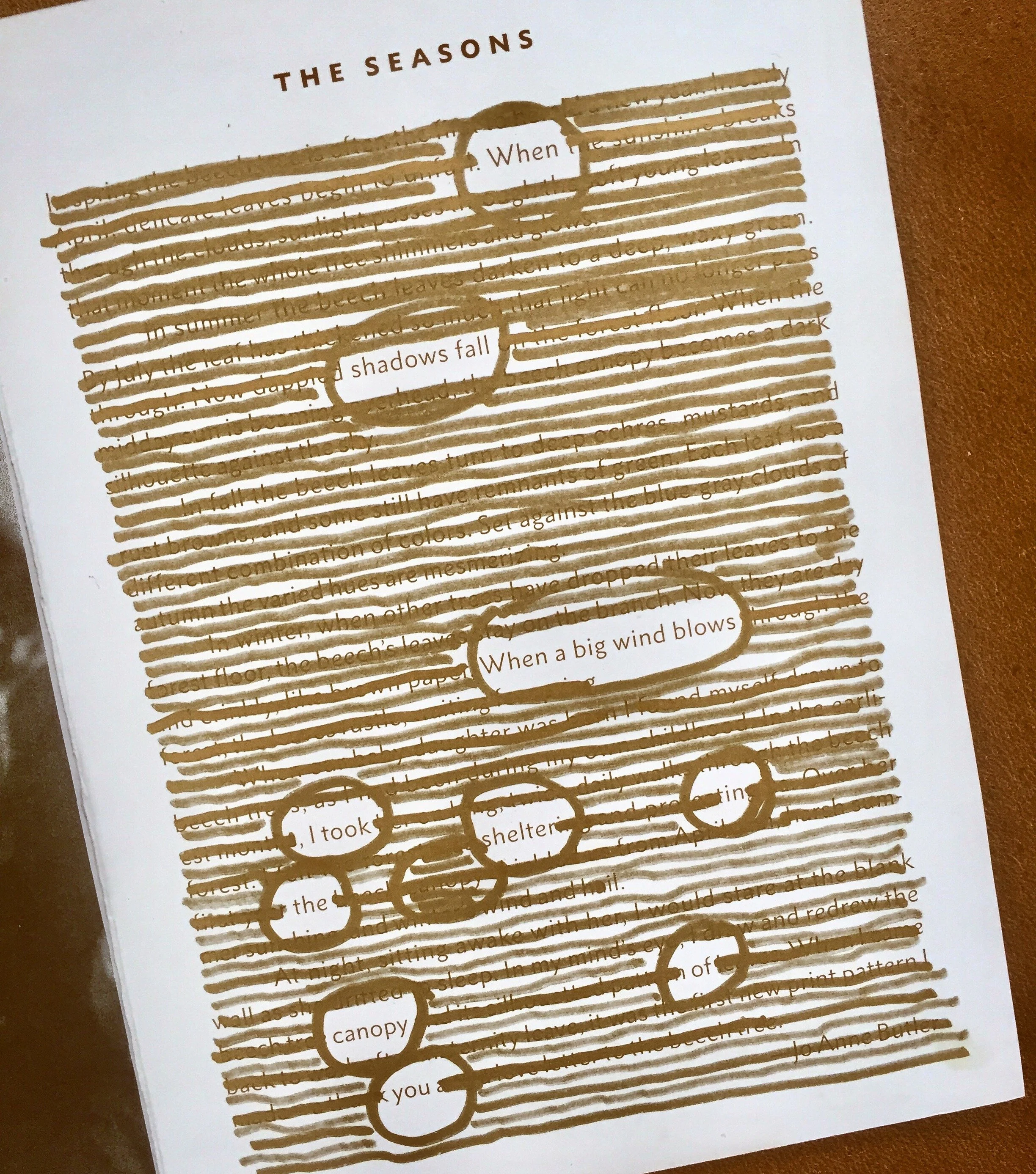Already it’s happened. “An abundance of caution” has replaced “thoughts and prayers.”
We don’t know what to say, so we say the same sentiment again and again.
• • •
As we live in “social distances” — we’ll return, again, to the Letter. In times of sickness and sadness, of grief and uncertainty, pen and paper are revived. A note, a letter, a scratch, a handwritten scrawl.
Wish you were here. Thinking of you. With love.
At the nursing home where I work, visitors have been banned to protect the vulnerable population from catching the coronavirus. Instead of face-to-face visits, we’re encouraging phone calls, text, skype, facetime, and my favorite, old-fashioned mail.
I’m reminded of my grandma, a tireless penpal. When I was a child, in the hospital for months at a time, my grandma sent letters and cards, each in her perfect penmanship, with a stick of gum taped inside.
Write me a letter — it’s infection-free, gluten-free, hypo-allergenic.
Send love with a stamp.
• • •
We write poems.
We’ll fill this new dark space with fresh words that guide us through the lonely places.
Tucking In My Daughter In The Time of Coronoa Virus
And because she is wise
in the ways the young are,
my daughter, frightened and weeping,
asked between sobs
for a happy story.
There are times when a story
is the best remedy—
not because it takes us away
from the truth but because
it leads us closer in.
I told her the story of her birth,
and we laughed until
it was my turn to cry as I realized
no matter how scary the world,
what a miracle, the birth of a child.
Then, as fear made a sneaky return,
we whispered a list of things we
were grateful for, falling asleep with these
words on our breaths: cats, books, rivers,
home, family, soft blankets, music.
— Rosemerry Wahtola Trommer
• • •
Blogs are back!
Blogs had a heyday, 10 years past, when writers were fast & fevered. Post every week, we were told. Every day! Every hour! Post everything!
Then social media arrived, and the party fizzled. The writers slithered away to facebook and twitter, crafting pithy banter in 100 words or less. We got cute, clever, clipped. We got snarky and barky. Introvert was out, telling was in. We shared, shared, shared. We took photos, mostly of ourselves. We lost interest in the long read, the slow reveal.
But now, we’re hunkered at home. Time moves slower. The news scroll wears us down. We’ll want more. There, in our need, the lowly blog will emerge, like the high school friend with whom you fell out of touch, then reconnected and discovered a renewed appreciation. She’s so loyal, you’ll think, so thoughtful and kind. So ordinary.
But now, like staplers and sneakers, ordinary will feel just right.
I’m ordinary too. Stick with me. Established in 2008, this blog and me — we’re here for the duration.






























